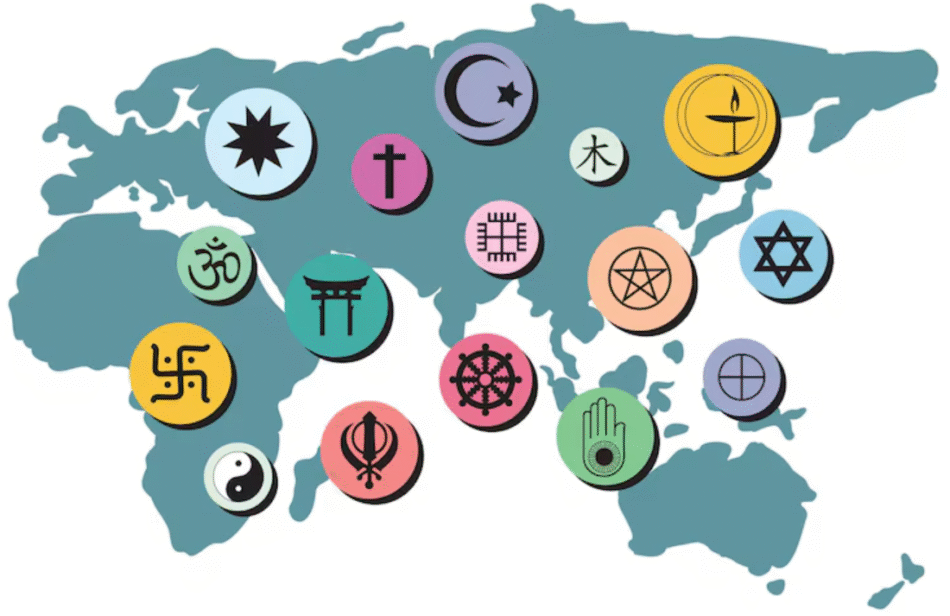In a world usually marked by different borders, beliefs and ideologies, we share one simple yet fundamental teaching that is, resourcefully, present in every faith under the varying names it is known as: the Golden Rule. It is a timeless moral teaching that reminds us to treat others as we would want to be treated. Whether written in sacred texts, spoken in ancient wisdom, or detailed in modern day codes of morality, the Golden Rule in all religion carries one message—to be compassionate, empathetic, and respectful to all beings.
While each faith may articulate it differently, the theme remains the same—the basis for a just and peaceful world lies in our kindness and respect for each other. Let’s examine how this similar idea runs through many of the world’s major religions and why it is important today.
1. Hinduism: Recognizing the Self in Others
In Hindu tradition, compassion and empathy are primary aspects of the philosophy of Ahimsa, non-violence in thought, word, and deed. The Mahabharata succinctly expresses this:
“This is the entirety of duty: Do not do to others one that which you would find pain if done to you.”
Thinking encourages self-awareness and mindfulness of oneself concerning how we treat others. Recognizing that all beings share the same divine presence (Atman), Hinduism teaches that the act of harming another is, in fact, an act of harming oneself.
2. Buddhism: Compassion as the Path to Enlightenment.
Compassion (Karuna) and loving-kindness (Metta) are also central to Buddhist emphasis for spiritual growth. The Buddha taught:
“Do not do to others what you would find hurtful.” — Udana-Varga 5.18
In the Buddhist path, it is crucial to have an understanding of the suffering of others in pursuing enlightenment. The Golden Rule becomes not just active but non-active — to consciously try and reduce suffering and create happiness — not just to avoid harm.
3. Jainism: Non-Violence as a Way of Life
Through the phrase Ahimsa Parmo Dharma, Jainism takes the Golden Rule to the ultimate level — “Non-violence is the supreme religion.” Jain beliefs include the notion that violence is never acceptable because every soul is sacrosanct, deserving of utmost compassion as it relates to every living thing, even the tiniest insect.
4. Christianity: Love Thy Neighbor as Thyself
Christianity is among the most well-known examples of the Golden rule teaching of Jesus Christ. In the Gospel of Matthew, He states:
“So in everything, do to others what you would have them do to you, for this sums up the Law and the Prophets.” – Matthew 7:12
Going above and beyond the need to “do no harm” is the demand that Christians act from love (agape), and empathy and kindness, not simply acting kind to others but actively doing for others, even seeing Christ in every person.
5. Islam: Wanting for Others What You Want for Yourself
Islam teaches its followers to be merciful (Rahma), as mercy is one of the basic qualities of God. Prophet Muhammad (peace be upon him) said,
“None of you has faith until he loves for his brother what he loves for himself.” — Sahih al-Bukhari
Bringing profound attention to sincerity and equality, the Prophet calls upon Muslims to reinforce the same manners one would expect for themselves. It extends beyond faith and borders to universality and brotherhood.
6. Sikhism: Being Equal and Compassionate
Sikhism is based on the ideas of equality and service; Sikhs are called to be compassionate with empathy, through Seva (selfless service) and Sarbat da Bhala (the welfare of all). Guru Nanak Dev Ji stated,
“Treat others as you would be treated yourself.”
Sikhs believe God is present in each and every individual and that caring and serving other people is done in service of God. The Golden Rule of care and compassion is lived daily — through service, humility, and standing against injustice.
Conclusion
The world’s religions may differ in some of their particular beliefs, ceremonies, and rights, but all humans have a heart that beats with compassion The Golden Rule and related principles of compassion across all religions remind us that compassion needs no context.
When we treat others with the same regard, love, and care we wish for ourselves as a general treatment of and with others, it is to honor our faith, yes, but more so honor our humanity. Allow this reminder during Diwali, Eid, the Christmas holiday, and any given day of the year that compassion is our lone beacon of light toward the willful human experience of both one another and ourselves.
After all, the greatest exercise of faith is counter-intuitive and simple – it to be kind.







